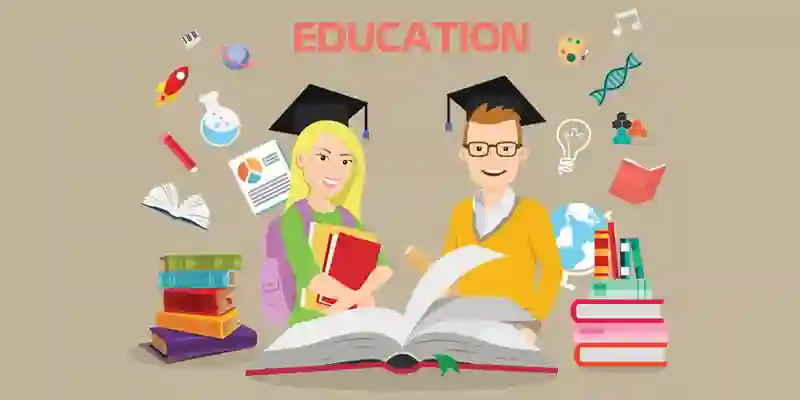Education is often associated with the acquisition of knowledge and academic prowess, but its impact extends far beyond the classroom. An essential aspect of education is the development of interpersonal skills, which are crucial for building strong and meaningful relationships. In this article, we will explore the profound connection between education and interpersonal skills, highlighting how education fosters communication, empathy, collaboration, and emotional intelligence.
The Role of Education in Interpersonal Skill Development
Education serves as a fertile ground for the cultivation of interpersonal skills. These skills encompass the ability to communicate effectively, understand and empathize with others, resolve conflicts, and work collaboratively. While academic subjects are essential, the development of interpersonal skills is equally critical for personal and professional success.
Effective Communication
Communication is at the core of all human interactions. Education provides the foundation for effective communication, emphasizing language skills, active listening, and the art of conveying ideas and thoughts clearly. Students learn to articulate their thoughts, ask questions, and engage in meaningful dialogues, all of which are essential for building strong interpersonal connections.
Empathy and Understanding
Empathy is the ability to understand and share the feelings of others. Education encourages empathy by exposing students to diverse perspectives, cultures, and experiences. Through literature, history, and social studies, students gain insight into the lives and challenges of people from different backgrounds. This exposure fosters empathy, promoting a deeper understanding of others’ emotions and perspectives.
Conflict Resolution
Interpersonal conflicts are an inevitable part of life, but education equips individuals with the skills to address and resolve them constructively. Through conflict resolution programs and peer mediation, students learn how to manage disagreements, find common ground, and reach solutions that are mutually beneficial. These skills are invaluable in maintaining healthy relationships.
Teamwork and Collaboration
In both academic and extracurricular activities, education promotes teamwork and collaboration. Students engage in group projects, sports, clubs, and community service, providing opportunities to work together toward common goals. Collaboration encourages individuals to consider diverse viewpoints, leverage collective strengths, and build strong bonds with peers.
Emotional Intelligence
Emotional intelligence is the ability to recognize, understand, and manage one’s own emotions and the emotions of others. Education contributes to the development of emotional intelligence by promoting self-awareness, self-regulation, empathy, and social skills. These competencies are essential for navigating complex social situations and fostering positive relationships.
Leadership Skills
Education also nurtures leadership skills, which are closely tied to interpersonal abilities. Students have the opportunity to assume leadership roles in clubs, student government, and community service initiatives. Through these experiences, they learn to inspire and motivate others, listen to feedback, and make decisions that benefit the group.
Active Citizenship
Active citizenship involves participating in civic activities and contributing to the well-being of one’s community. Education instills a sense of responsibility and encourages students to engage in volunteer work, community projects, and advocacy for social causes. Active citizenship builds strong connections with others who share similar values and goals.
Cultural Competence
Cultural competence is the ability to interact effectively with people from diverse cultures. Education promotes cultural competence by teaching students about global cultures, customs, and traditions. Exposure to different cultures fosters tolerance, respect, and the ability to navigate cross-cultural interactions.
The Role of Educators
Educators play a pivotal role in fostering interpersonal skills. They create a classroom environment that encourages open communication, active listening, and respectful interactions. Teachers serve as role models for empathy, conflict resolution, and teamwork, demonstrating these skills in their interactions with students.
Challenges and Opportunities
While education is a powerful tool for developing interpersonal skills, it also faces challenges in this regard. In an age of increased screen time and digital communication, there is a growing concern that face-to-face interactions and interpersonal skills may be eroding. However, educators recognize the importance of addressing this issue by incorporating social and emotional learning (SEL) into curricula.
SEL programs focus on building self-awareness, self-regulation, social awareness, relationship skills, and responsible decision-making. These programs provide students with practical tools and strategies for enhancing their interpersonal skills, both in and outside the classroom.
The Lifelong Journey of Interpersonal Skill Development
Interpersonal skill development is not limited to formal education; it is a lifelong journey. Individuals continue to refine and strengthen their interpersonal skills throughout their lives, adapting to changing social contexts and relationships. Lifelong learning, personal reflection, and real-world experiences all contribute to the ongoing development of these skills.
Conclusion
Education and interpersonal skills are inseparable partners on the path to personal and professional success. Education not only imparts knowledge but also equips individuals with the interpersonal skills needed to navigate the complexities of human relationships. Effective communication, empathy, conflict resolution, teamwork, and emotional intelligence are all essential components of a well-rounded education.
As we recognize the profound connection between education and interpersonal skills, it is essential to value and prioritize the development of these skills in educational settings. By doing so, we empower individuals to build strong, meaningful, and harmonious relationships, contributing to their personal growth, well-being, and success in a diverse and interconnected world. Education is not just about what we know; it’s also about how we connect with others and build a better future together.




